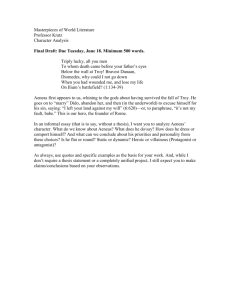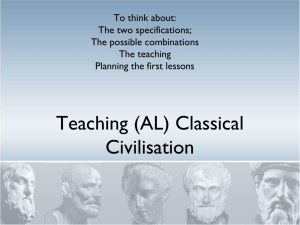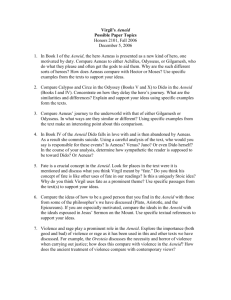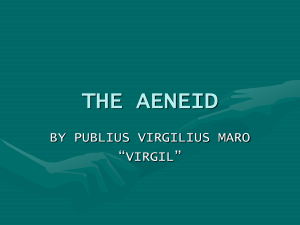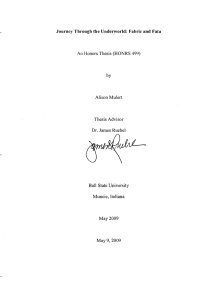Latin 212 / 312: Roman Epic
advertisement
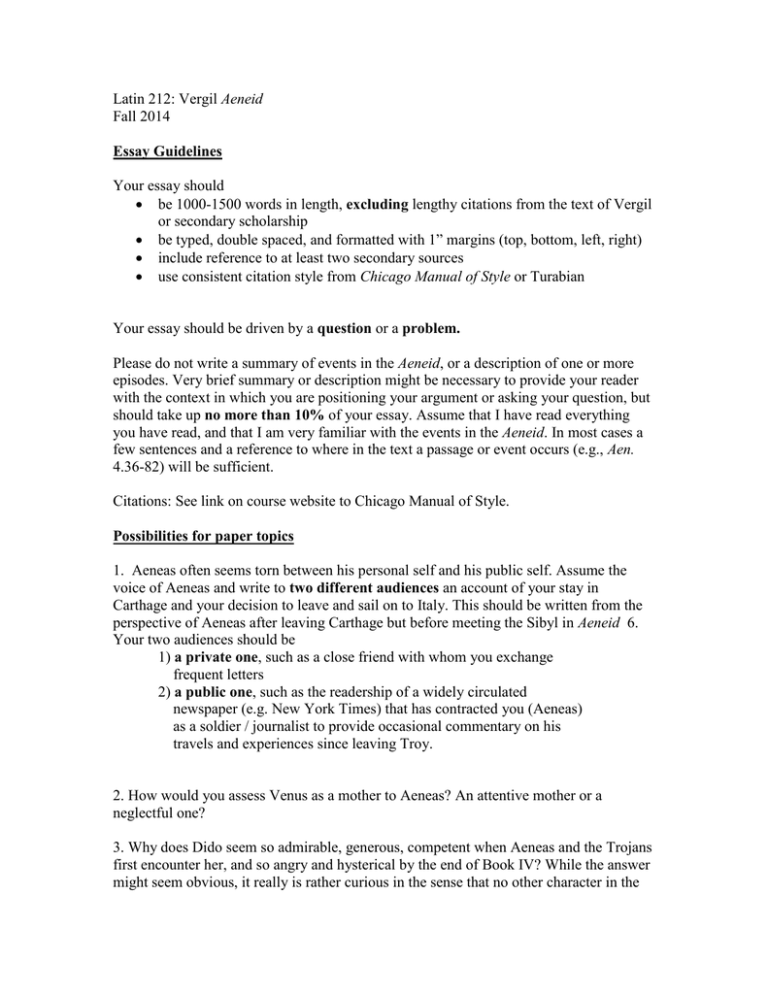
Latin 212: Vergil Aeneid Fall 2014 Essay Guidelines Your essay should be 1000-1500 words in length, excluding lengthy citations from the text of Vergil or secondary scholarship be typed, double spaced, and formatted with 1” margins (top, bottom, left, right) include reference to at least two secondary sources use consistent citation style from Chicago Manual of Style or Turabian Your essay should be driven by a question or a problem. Please do not write a summary of events in the Aeneid, or a description of one or more episodes. Very brief summary or description might be necessary to provide your reader with the context in which you are positioning your argument or asking your question, but should take up no more than 10% of your essay. Assume that I have read everything you have read, and that I am very familiar with the events in the Aeneid. In most cases a few sentences and a reference to where in the text a passage or event occurs (e.g., Aen. 4.36-82) will be sufficient. Citations: See link on course website to Chicago Manual of Style. Possibilities for paper topics 1. Aeneas often seems torn between his personal self and his public self. Assume the voice of Aeneas and write to two different audiences an account of your stay in Carthage and your decision to leave and sail on to Italy. This should be written from the perspective of Aeneas after leaving Carthage but before meeting the Sibyl in Aeneid 6. Your two audiences should be 1) a private one, such as a close friend with whom you exchange frequent letters 2) a public one, such as the readership of a widely circulated newspaper (e.g. New York Times) that has contracted you (Aeneas) as a soldier / journalist to provide occasional commentary on his travels and experiences since leaving Troy. 2. How would you assess Venus as a mother to Aeneas? An attentive mother or a neglectful one? 3. Why does Dido seem so admirable, generous, competent when Aeneas and the Trojans first encounter her, and so angry and hysterical by the end of Book IV? While the answer might seem obvious, it really is rather curious in the sense that no other character in the Aeneid shows such a radical change. Does Vergil not like Dido? Does the narrative depend on a negative characterization of her? Would you have written her into the story differently? If so, describe how. 4. Compare Vergil’s portrayal of the women with whom Aeneas has marital (or quasimarital) relationships: Creusa, Dido, and Lavinia. How do these characters differ, and why? 5. What is the role of FATE in the Aeneid? What about the gods? Is there a hierarchy among the powers to which mortal characters must submit? 6. What underlies the very different perspectives that Aeneas and Dido have in regard to their relationship? Is there a “religious” problem that informs the view of each? A problem of “cultural” difference? A gender problem? Or what exactly does account for the chasm in their communication over Aeneas’ departure? 7. Why does Aeneas go to the underworld in Book VI? 8. Is the Aeneid a handbook for being a good Roman? How so or how not? 9. How is Aeneas’ tour of the underworld different from Odysseus’? 10. Troy vs. Italy vs. Rome in the Aeneid: where is home for Aeneas? 11. Aeneas’ view of history: To what degree is Aeneas a victim of history, and to what extent an agent? 12. Why does Virgil portray some of Aeneas’ enemies with great sympathy?
